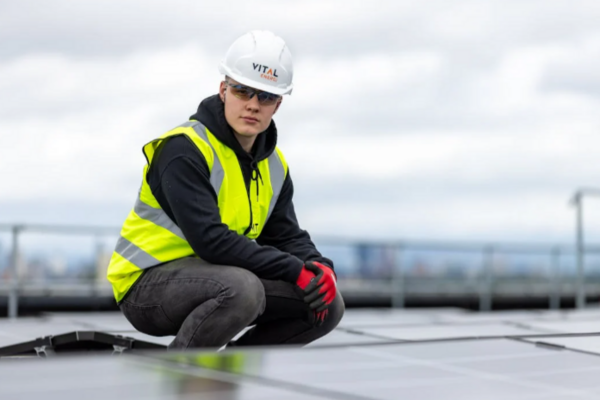Ministry of Electricity, Iraq has prequalified eight companies to carry out solar power projects that will supply electricity to homes in Baghdad and other regions. This announcement was made by Electricity Minister Ziad Fadil, who stated that the move is part of Phase 1 of an initiative launched by Iraq’s Central Bank to expand the use of solar energy among Iraqi families. As part of this initiative, the government will provide loans to citizens to help them install solar power systems in their homes.
In recent months, Iraq has signed agreements for several large-scale solar projects with foreign companies, with a combined generation capacity of 7.5 gigawatts (GW). This week, the Basra Investment Commission signed an agreement with the French company TotalEnergies to build a 1,000-megawatt (MW) solar power plant at a cost of $820 million. Additionally, two solar plants with a total capacity of 500 MW are planned in Kirkuk province.
The Central Bank of Iraq also launched an initiative valued at one trillion Iraqi dinars (approximately $760 million) to support solar energy projects. However, as of last month, only 250 million Iraqi dinars had been disbursed to 10 borrowers. Despite the slow disbursement, Iraq continues to develop other renewable energy projects across the country, focusing not only on large-scale solar farms but also on smaller, localized renewable initiatives.
In Najaf province, a 30 MW solar farm is under construction, designed to supply electricity to local communities and reduce reliance on diesel generators. In Muthanna province, Iraq is developing a hybrid energy project that combines solar and wind power, with an expected capacity of 50 MW—35 MW from solar panels and 15 MW from wind turbines. Diyala province is home to a 20 MW solar pilot project aimed at assessing the efficiency of solar energy under varying weather conditions. Additionally, in remote areas of Anbar province, off-grid solar systems with a total capacity of 15 MW are being installed to provide electricity to communities that are not connected to the national grid.


